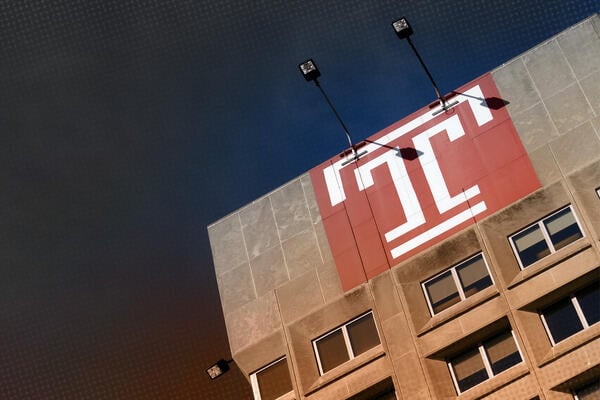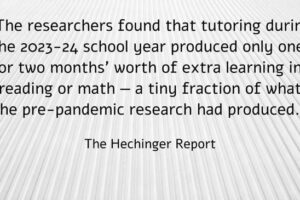
Embracing Transparency After a Rankings Scandal
It’s college rankings season again, a time of congratulations, criticism and, occasionally, corrections for institutions and the organizations that rate them.
Typically U.S. News & World Report, the giant of the college rankings world, unranks some institutions months after its results are published over data discrepancies that are usually the result of honest mistakes. But in rare instances, erroneous data issues aren’t mistakes but outright fraud. And when that happens, it can result in soul-searching and, ideally, redemption for those involved.
That’s what happened at Temple University, which was rocked by a rankings scandal in 2018, when it became clear that Moshe Porat, the dean of Temple’s Richard J. Fox School of Business and Management, had knowingly provided false data to U.S. News for years in a successful effort to climb the rankings. Temple’s online master of business administration soared to No. 1—until the scheme was exposed. U.S. News temporarily unranked the program, the U.S. Department of Education hit Temple with a $700,000 fine and Porat was convicted of fraud.
Since then, Temple has worked hard to restore its reputation. In the aftermath of the scandal, officials imposed universitywide changes to how it handles facts and figures, establishing a Data Verification Unit within the Ethics and Compliance Office. Now any data produced by the university goes through a phalanx of dedicated fact-checkers, whether it’s for a rankings evaluation or an admissions brochure.
A Culture Shift
Temple’s Data Verification Unit was introduced in 2019 amid the fallout of the rankings scandal.
At first, it gave rise to “friction points,” as university officials were required to go through new processes to verify data before it was disseminated, said Susan Smith, Temple’s chief compliance officer. But now she believes the unit has won the trust of colleagues on campus who have bought in to more rigorous fact-checking measures.
“It’s been an incredibly positive thing for Temple and I think for data integrity over all,” Smith said.
Initially, Temple partnered with an outside law firm to verify data and lay the groundwork for the unit. Now that is all handled in-house by a small team that works across the university.
While Smith said “the vast majority of mistakes” she sees “are innocent,” her team is there “to act as a sort of backstop” and to “verify that the data is accurate, that there’s integrity in the data.”
The Data Verification Unit also provides training on best practices for data use and dissemination.
University officials believe placing the Data Verification Unit under the centralized Office of Compliance and Ethics—which reports directly to Temple’s Board of Trustees—is unique. And some say the process has created a bit of a culture shift as they run numbers by the unit.
Temple spokesperson Stephen Orbanek, who joined the university after the rankings scandal, said running news releases by the Data Verification Unit represented a “total change” from the way he was accustomed to operating. And while it can sometimes slow down the release of certain data points or responses to media requests, he said he’s been able to give reporters more robust data.
He also noted times when Temple has had to pull back on marketing claims and use “less impressive” statistics after the Data Verification Unit flagged issues with materials. As an example, he cited a fact sheet put out by the university in which officials wanted to refer to Temple as a top producer of Fulbright scholars. But the Data Verification Unit insisted that a caveat was needed: The statistic pertained only to the 2022–23 academic year.
Ultimately, Orbanek sees the Data Verification Unit as a boon for a more transparent campus culture.
“The culture has just kind of shifted, and you get on board,” Orbanek said.
Other Rankings Scandals
Other universities have been less forthcoming about fixing their own data issues.
In 2022, a professor called out his employer, Columbia University, for submitting inaccurate data to U.S. News, which responded by unranking the institution for a short time. Following the scandal and accusations of fraud by some critics, Columbia announced the university would no longer submit data to U.S. News. Officials argued that the rankings have outsize influence on prospective students but don’t adequately measure institutional quality.
Yet Columbia still publishes large swaths of data, such as its Common Data Set. Asked how the university has acted to verify data in the aftermath of the rankings scandal, a spokesperson wrote by email that data is “reviewed by a well-established, independent advisory firm to ensure reporting accuracy” but did not respond to a request for more details on the verification processes.
The University of Southern California also navigated a rankings scandal in 2022. USC provided faulty data to U.S. News for its Rossier School of Education, omitting certain metrics, which helped it rise in the rankings, according to a third-party report that largely blamed a former dean.
U.S. News temporarily unranked Rossier; graduate students sued the university, accusing officials of falsely advertising rankings based on fraudulent data. That legal battle is ongoing, and earlier this year a judge ruled that the case can proceed as a class action suit.
Officials did not respond to a request from Inside Higher Ed for comment on whether or how USC has changed the way it verifies data for use in rankings or for other purposes.
U.S. News also did not respond to specific questions about if or how it verifies that information submitted by institutions to be used for ranking purposes is accurate. A spokesperson told Inside Higher Ed, “U.S. News believes that data transparency and internal accountability practices by educational institutions are good for those institutions and good for consumers.”
Source link



